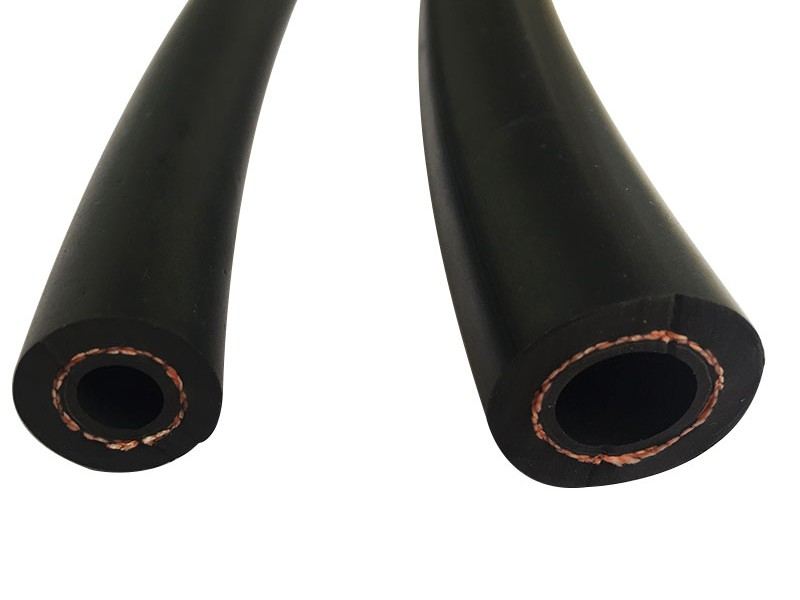335345435
Dec . 05, 2024 09:19 Back to list
Choosing the Right Hose for Your Gasoline Tank Needs
Understanding Gasoline Tank Hoses Importance, Types, and Maintenance
Gasoline tank hoses are essential components of fueling systems found in various vehicles and machinery. These hoses facilitate the safe and efficient transfer of gasoline from storage tanks to engines, ensuring that vehicles can operate smoothly. Given the critical role these hoses play in transportation and machinery operations, it is important to understand their function, types, and maintenance requirements.
The Importance of Gasoline Tank Hoses
Gasoline tank hoses serve numerous functions. Primarily, they are designed to transport fuel from the tank or storage facility to the engine or fuel delivery system. The design of these hoses is crucial because they must withstand not only the corrosive properties of gasoline but also varying temperatures and pressures.
One of the key aspects of gasoline tank hoses is their ability to prevent leaks. A compromised hose can lead to environmental hazards and safety risks, such as fire or explosion. Therefore, using high-quality materials and adhering to safety standards during installation and maintenance is critical.
Types of Gasoline Tank Hoses
Gasoline tank hoses come in various types, each designed to meet specific requirements. Here are some common types
1. Fuel Transfer Hoses These hoses are designed for transferring gasoline from storage tanks to vehicles. They are typically flexible, allowing for easy maneuverability during fueling operations.
2. Fuel Line Hoses These hoses connect the fuel tank to the engine. They are engineered to withstand the pressure exerted by the fuel pump while resisting the corrosive effects of gasoline.
3. Vapor Recovery Hoses These specialized hoses capture fuel vapors during the refueling process. They help reduce emissions and improve fuel efficiency, making them essential for environmental protection.
4. High-Pressure Hoses Designed for vehicles or machinery operating under higher pressure conditions, these hoses are reinforced to withstand the increased stress without failing.
Key Materials
gasoline tank hose

The materials used in the production of gasoline tank hoses are crucial for their effectiveness
. Common materials include- Rubber Often used for its flexibility and durability, rubber hoses are suitable for various temperature ranges. However, they must be formulated specifically to resist fuel degradation.
- PVC (Polyvinyl Chloride) Known for its chemical resistance, PVC is often used in lower-pressure applications or where flexibility is needed.
- Teflon This material offers excellent chemical resistance and is used for high-pressure applications, particularly in advanced fuel delivery systems.
Maintenance Considerations
Proper maintenance of gasoline tank hoses is vital in prolonging their lifespan and ensuring safety. Here are some key maintenance practices
1. Regular Inspection Routine visual checks can help identify wear and tear, cracks, or any signs of leaks. Inspect the entire length of the hose, including connections, to ensure integrity.
2. Replace Worn Hoses If any signs of damage are found, it is crucial to replace the hose immediately. Operating a vehicle or machinery with a compromised hose can lead to significant safety hazards.
3. Storage Conditions Hoses should be stored in a manner that protects them from excessive heat, sunlight, and chemicals that might cause deterioration.
4. Follow Manufacturer Guidelines Always adhere to the manufacturer’s recommendations regarding the type of hose to use and their replacement schedule.
Conclusion
In summary, gasoline tank hoses are critical components for any fuel delivery system in vehicles and machinery. Understanding their importance, the various types available, and how to maintain them can help ensure safety and efficiency. Given their propensity to degrade and become compromised, regular inspections and adherence to maintenance guidelines are essential in avoiding potential hazards associated with fuel leaks or hose failures. As we continue to innovate and improve our fueling systems, the role of gasoline tank hoses remains central to the safe and effective operation of transportation and machinery.
-
SAE 100 R17 Black Smooth Cover Hydraulic Hose
NewsMar.07,2025
-
SAE 100 R17 Black Smooth Cover Hydraulic Hose
NewsMar.07,2025
-
SAE 100 R17 Black Smooth Cover Hydraulic Hose
NewsMar.07,2025
-
SAE 100 R17 Black Smooth Cover Hydraulic Hose
NewsMar.07,2025
-
SAE 100 R17 Black Smooth Cover Hydraulic Hose
NewsMar.07,2025
-
steel wire braided hydraulic hose
NewsMar.07,2025



